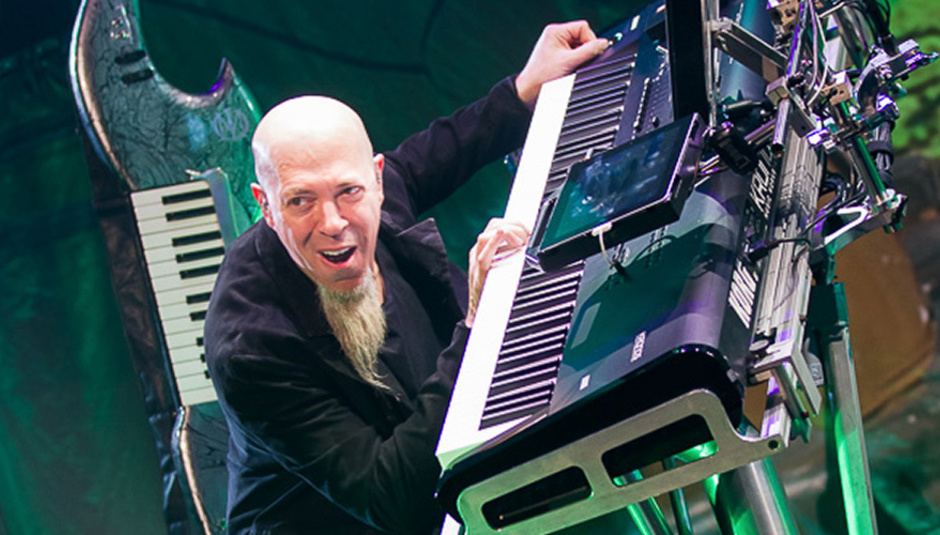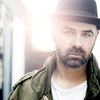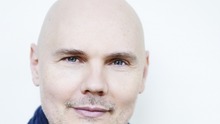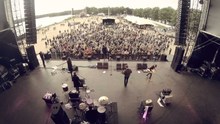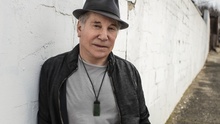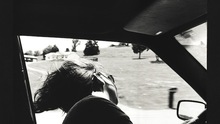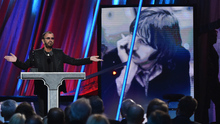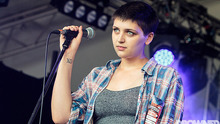Dream Theater aren’t scared of taking risks. But it’s a given; the genre the US quintet effectively coined, progressive metal, expects the out of the ordinary.
The Grammy-nominated band, who formed in 1985 and have since sold tens of millions of records, are well-known for grandiose epics, dazzling virtuosity and complex structures. However, their latest album The Astonishing seems one step even further.
It’s a double-disc concept record with a running time of two hours and 17 minutes, with 34 tracks telling a futuristic story that doffs its cap to the likes of Game of Thrones.
It’s Dream Theater at their most expansive yet; there’s a multitude of styles, from prog to Broadway, swing jazz to blastbeats - the latter two quite literally found in the space of ten seconds - while orchestra and choir work from renowned composer David Campbell ensures things are kept thoroughly cinematic throughout.
DiS caught up with keyboard player Jordan Rudess to find out more about Dream Theater’s new album, working with David Bowie and if he really did compose music for a Toys R Us advert…
Did you consciously decide to do something different musically on The Astonishing, or did the idea happen organically?
We’ve wanted to do a concept album for years, ever since we did the first one, Scenes From A Memory in 1999. We were waiting for the right time to roll around, and the right time happened.
But we wanted to something a little bit deeper, with the story a bit more detailed. [Guitarist] John Petrucci especially felt like he wanted to write something that he felt strongly about. So he started the story about two and a half years ago, which he then presented to us more recently at the end of the last world tour.
He came to me with a synopsis of the story and I read through it. I got really inspired, I took it home and started to write a bunch of music at home on my piano. Every day was basically he and I writing music and him refining and crafting his story. It was almost like working on a film score, or music for a musical.
It seems like the metal and ‘shredding’ elements have almost been put on the backburner a bit, and there’s a lot of focus on the songwriting.
When we were writing it, we thought ‘what do we need to write to portray this story?’. One thing is telling the story with the words and the lyrics, but the other thing is telling the story with the music that you hear. There’s different themes for characters, and we were very organised about creating that. It’s almost like putting together a puzzle. We wanted the music to really fit the story. So the characters would return, or scenes would return, and we would also reflect that in the music.
There’s a host of musical styles on the album, and even instruments like bagpipes. Did you allow yourselves even more room for experimentation in that way on this record?
Yeah, we knew we wanted to make it grander, and we were open to having all kinds of different instrumentalists and ideas to help tell the story. For one thing, we hired David Campbell, who was gracious enough to agree to work with us.
We wanted to have orchestra and choir on this album, we knew that. But we also wanted a more organic approach in terms of the sound of the band. For example, instead of on my keyboard using all digital instruments, we found a beautiful nine-foot Steinway grand, and we found an amazing Hammond B3 organ.
So what we did do in the studio when we were writing the music, we would use my instruments - my synthesisers and samplers - to kind of create the texture that we wanted to show David Campbell, an almost pre-orchestration. He had the experience to know what a real orchestra can play and can’t, and he helped us in terms of logistics and getting it all done, in different studios around the world. He knew the bagpipe player, he knew the singer…he brought in all these musicians.
John Petrucci again acted as producer, but would you consider working with an outside producer in the future?
I think especially for a project like this, I don’t think there’s anybody that could have done what John did. It’s so deep, on every level - there’s so much coordination. I’m very happy with how John not only logistically dealt with everything, but also he was really good with all the musicians. He manages to get great performances.
But at the same time, if ever an opportunity came about and somebody really great wanted to work with us in the future, I’m personally not against the idea completely.
There won’t be any orchestra or choir on your upcoming tour, so will it be up to you to completely replicate that on your keyboards and devices?
It’ll definitely be partly up to me. I’ve been working really hard on getting a lot of the sounds that we need. But also with this album, it’s kind of like going to the movies, or something like that. We’re using different tools to recreate it as well. Just like most bands, who have backing tracks or things like that.
Do you have any more details about the stage set-up?
We’re doing things differently than we’ve done before. We’ve hired a company from Montreal that specialises in interesting live experiences. All the screens, and the projections and animations, are supervised by this one company. The whole show will have a very different look, especially as it’s a concert where we’re playing The Astonishing from beginning to end. Everyone can expect to walk in and see something completely new for Dream Theater on every level.
Have you had any thoughts about taking the album into musical territory, or film?
Definitely. When we were writing it, we were thinking that it’s something that could really open itself up to a lot of different mediums, because the story is so detailed and the music is so theatrical. I could definitely see this being maybe a musical or a film or a book, or video game. We’re open to all that, but at the same time we’re very focused on what we have to do right now, which is releasing a Dream Theater album.
Has John ever suggested there might be a sequel in the works?
We’re not quite there yet, but with any good story, you always leave it open…
Things are quite different now in the band, with [former drummer and founding member] Mike Portnoy seemingly leading Dream Theater until his departure in 2010. Is there more of a democracy now?
Things are so different. John Petrucci is kind of the leader if you will, but he does it in a very different way than Mike did. There were a lot of good things to say about Mike Portnoy, certainly in the day, but after he left, a lot of things changed.
From a personal point of view, I’m really happy with the way it feels, and the new album. It was a pleasure to make, and it was just John and I writing the music. That felt right; I joined the band 16 years ago and although it’s maybe a little bit hard to decipher in the Portnoy days, it’s kind of been that way that it’s been since I joined. I feel like it’s a little bit more real in some ways for me - I’m not kind of put in the background even though I’m writing so much music.
Mike previously said that he didn’t get invited in any way to celebrate Dream Theater’s 30th anniversary last year. Would you be open to him taking part in future anniversary celebrations?
Mike and I are friends, so I guess that I’m open to anything.
Thirty years is a long time for a lot of bands - how long do you think Dream Theater can go on for?
I’m going to be 60 in November - and how many more years do I want to do rock and roll…I’ll have to do the calculations. We’re enjoying it now, so we’ll see how it goes.
Did [drummer] Mike Mangini and [bassist] John Myung have much input in the creative process of The Astonishing?
John Petrucci and I composed the whole thing, and after that, we had the other guys come in and play. With someone like Mike Mangini, he’s got his own style on the drums, so when you listen to to it, you know it’s him. He was able to come in and be creative with his instrument. John Myung - for 30 years he has been delivering the goods. So he came in and did his thing.
I think that for James [LaBrie, singer], this is his tour de force. We gave him the job of embodying all these different characters, and I think he did a fantastic job to sing all the parts, from the male to the female characters, and to come up with different energy projections. He really did a great job.
You worked with the late David Bowie on his 2002 album Heathen. How did that come about?
I was brought in by producer Tony Visconti because he probably told David that I could do whatever ideas he wanted to do. I was aware of his music, but I wouldn’t say I was a huge fan at the time - I didn’t own any of his albums. But I went in and I enjoyed the session. I had a great experience with him. I was on a bunch of the songs.
Do you have any abiding memories of David?
The time I had with him was really memorable, because he was such an iconic figure. I was there for about ten days, camping out, living up by the studio, which was on the top of a mountain in the Catskills in New York.
Every time before a track, David would paint a verbal picture to me of what the song was about, so I would get in the mood. There was one song where I was playing the piano, and he painted this picture of me in an old dusty restaurant/cafe at a place in France, and by the time he finished the story, I was deeply in it. So when I did the track, I was really in the mood. I totally remember things like that.
One of the funny memories I have of the way the album was being made was when I walked in one day to do a piano track. There were two pianos - one of which was a grand piano, the other was an upright one.
I thought ‘great, I’ll be playing the Steinway piano’. So I started warming up on it, and when David and Tony came in, they said no, we want you to play the upright piano - that’s got the special tuning that David likes. So I thought it was interesting that I would get to play the upright piano.
I started playing it, but after about a minute, they said no, actually we don’t want that either - we want you to play the grand piano, but we want to take the lid off the upright piano and take the sustain pedal down from the upright piano, and then put the mics right next to the strings of the upright and let it capture the resonance of the upright while you play the grand. That’s how the piano was recorded in the song Slip Away. It was a trick they used to do back in the Brian Eno days.
Have you got any other projects bubbling away in the background, or is it purely Dream Theater at the moment?
I just did a whole bunch of tracks for a new album with Tony Levin and Marco Minnemann. I’m really excited about the second album.
One last question - there’s been rumours online for years that you composed the theme for a Toys R Us advert in the 1990s. Is that true?
Oh yeah. It was many years ago. I composed the music for some ad for Toys R Us, that’s right. I’ve not heard about that in a long time.
The Astonishing is out now via Roadrunner.

